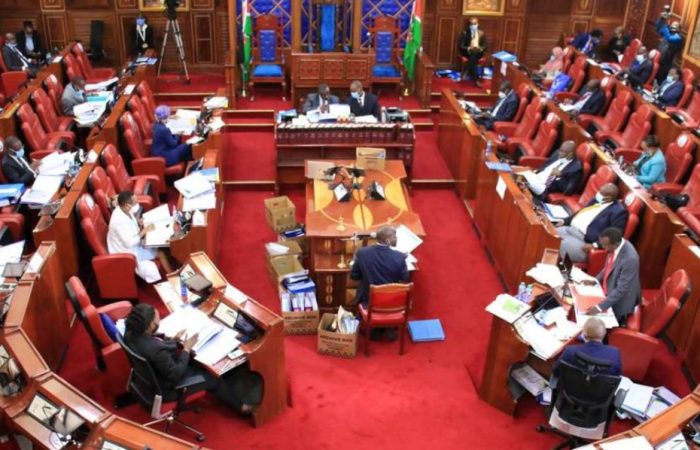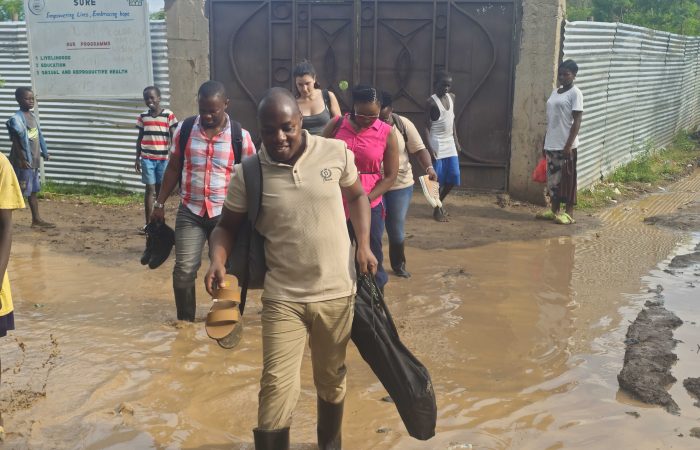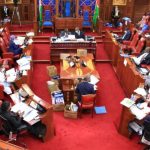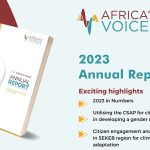In the heart of Somalia, where tradition has for long been held sacred, change is taking place. It’s an initiative that’s challenging centuries-old practices and reshaping the lives of women and girls for the better. At the forefront of this change are radio shows and SMS campaigns that are sparking conversations, raising awareness, and prompting action against Female Genital Mutilation (FGM), thanks to Africa’s Voices’ SMS and interactive radio approach.
At the end of the implementation of our interactive radio series across Somalia to engage citizens and gather insights on Sexual and Reproductive Health (SRH) services and related issues, we held a phone conversation with one of the community members who had actively participated in these transformative programs. Her words resonated with passion and conviction. “It was important topics that are necessary for community wellbeing, especially for women,” she declared. “Among the crucial topics discussed, two stood out: Female Genital Mutilation (FGM) and Gender-Based Violence (GBV),” she added.
The interviewee and other community members were not just passive listeners for the AV’s curated radio shows, when asked if she had participated in the shows, responded with a resounding “Yes!” She shared her insights and views on female health, specifically focusing on the impact of FGM on women at various stages of life.
As the conversation continued, our interviewer delved deeper into what the participant had gained from the programs. “I got to understand the effects of female genital mutilation on Somali women and its health consequences,” she explained. These programs had become a source of knowledge, illuminating the dark corners where the consequences of FGM had hidden for generations.
The past was not without its challenges. FGM was a deeply entrenched practice, with girls undergoing the procedure at a young age. The repercussions were immense, leading to difficulties during menstruation and childbirth. But, as our interview revealed, change is underway. Our programming had begun to bear fruit, significantly changing the attitude and beliefs about FGM in the community.
When asked about the future, our interviewee expressed optimism. “Will such programs be impactful in the future?” we inquired. Her response was an emphatic “Yes.” The decline in FGM cases in their community was a testament to the potential for lasting change. These programs had opened the door to a discussion that had been kept behind closed doors for far too long.
In closing, our interviewee suggested future topics to be covered in these programs. She highlighted the importance of education for girls and women, the roles women play in society, and the formidable challenges they face. From harmful traditional practices to discrimination and limited access to fundamental rights, these issues underscore the urgency of continued dialogue and action.
Somali communities are at the cusp of transformation. Through radio shows and SMS campaigns, they are breaking the silence surrounding FGM. As the interview revealed, the power of community engagement, education, and open conversations is driving change. With each SMS, with each discussion, they are drawing closer to a future where the practice of FGM becomes a relic of the past, where women and girls can live healthier, happier lives, free from the shadow of this harmful tradition.
Photo Credit: Feije Riemersma/ Flickr.com




